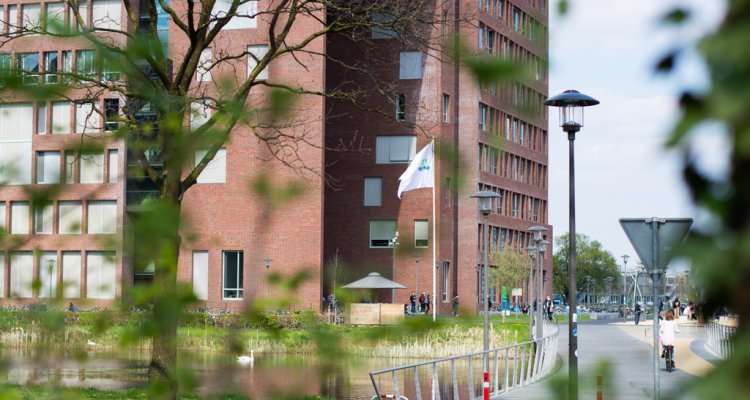
Why choose for WUR?
Wageningen University & Research (WUR) is one of the top-ranked universities in the world. According to influential university rankings and citation indexes, the university ranks world’s best in the field of Agriculture & Forestry.
Why choose Wageningen University & Research?
Besides the global reputation for its innovative and ground-breaking research, Wageningen University & Research has an internationally recognised PhD Programme (international Peer review 2015 and EUA Peer review 2015). Various reasons can be mentioned for the recognised reputation:
- The learning targets of the PhD programme, proving academic independence and acquiring T-shaped skills offer an excellent base for starting a scientific career or an alternative career as a higher academic in society. This is confirmed by the high employment rate of recent PhD graduates and the career trajectory of Wageningen PhD alumni.
- The PhD programme is supported by six Graduate Schools. Graduate Schools support the PhD candidates in their PhD programme by controlling quality, facilitating progress where needed and supporting the PhD candidate in reaching the learning targets obtaining T-shaped skills by offering an array of PhD courses and other training activities.
- Both the university’s PhD programme and the six Graduate Schools have got a strong international character. More than half of our PhD candidates come from over 100 countries
Philosophy of the programme
Scientific independence
To obtain a PhD degree the candidate must have shown to be able to function as an independent scientist i.e.: developing relevant research questions, doing original scientific research to address these questions, leading to sound interpretation of the results and drawing the correct conclusions, placing these in the existing knowledge framework and communicating the findings.
T-shaped skills
During our PhD programme, the candidate must acquire so-called T-shaped skills which imply:
- In-depth insight in the specific research (s)he is doing (vertical bar of the T) and placing this acquired knowledge in a broad scientific and societal context (horizontal bar of the T).
- Having the skills and competences to function as a qualified academic in academia (vertical bar of the T) and in society at large (horizontal bar of the T).
Content
The four-year PhD programme largely consists of conducting research and writing a thesis (dissertation). Furthermore, 10% of the time can be spent on teaching and up to 15% of the time is spent on training and education activities which include participation in (international) courses, competence and skills training, seminars, conferences and workshops. See PhD Training and Education.
Learning targets
The learning targets of the PhD Programme are:
1. Functioning as independent practitioner of science who is able to:
- Formulate scientific questions, either based on social issues or scientific progress;
- Conduct original scientific research;
- Publish articles in peer-reviewed scientific journals, publish books with scientific publishers or make a technical design.
2. Integrating the research in, or placing it within the framework of, the own scientific discipline and against the background of a broader scientific area;
3. Placing the research aims and research results in a societal context;
4. Postulating concisely worded propositions in scientific and societal areas, formulated in such a way that they are subject to opposition and defence.